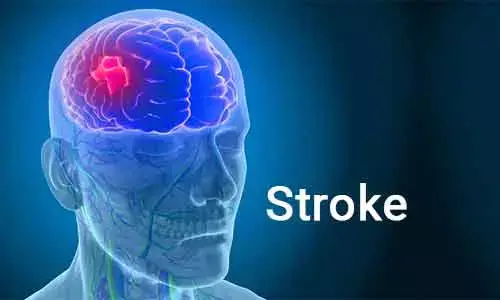- Home
- Medical news & Guidelines
- Anesthesiology
- Cardiology and CTVS
- Critical Care
- Dentistry
- Dermatology
- Diabetes and Endocrinology
- ENT
- Gastroenterology
- Medicine
- Nephrology
- Neurology
- Obstretics-Gynaecology
- Oncology
- Ophthalmology
- Orthopaedics
- Pediatrics-Neonatology
- Psychiatry
- Pulmonology
- Radiology
- Surgery
- Urology
- Laboratory Medicine
- Diet
- Nursing
- Paramedical
- Physiotherapy
- Health news
- Fact Check
- Bone Health Fact Check
- Brain Health Fact Check
- Cancer Related Fact Check
- Child Care Fact Check
- Dental and oral health fact check
- Diabetes and metabolic health fact check
- Diet and Nutrition Fact Check
- Eye and ENT Care Fact Check
- Fitness fact check
- Gut health fact check
- Heart health fact check
- Kidney health fact check
- Medical education fact check
- Men's health fact check
- Respiratory fact check
- Skin and hair care fact check
- Vaccine and Immunization fact check
- Women's health fact check
- AYUSH
- State News
- Andaman and Nicobar Islands
- Andhra Pradesh
- Arunachal Pradesh
- Assam
- Bihar
- Chandigarh
- Chattisgarh
- Dadra and Nagar Haveli
- Daman and Diu
- Delhi
- Goa
- Gujarat
- Haryana
- Himachal Pradesh
- Jammu & Kashmir
- Jharkhand
- Karnataka
- Kerala
- Ladakh
- Lakshadweep
- Madhya Pradesh
- Maharashtra
- Manipur
- Meghalaya
- Mizoram
- Nagaland
- Odisha
- Puducherry
- Punjab
- Rajasthan
- Sikkim
- Tamil Nadu
- Telangana
- Tripura
- Uttar Pradesh
- Uttrakhand
- West Bengal
- Medical Education
- Industry
Prehospital treatment in mobile units decreases disability in stroke patients

LOS ANGELES -- Mobile stroke units equipped with CT for prehospital thrombolysis not only reduce time to treatment, but had higher rates of thrombolysis and reduced risk for disability and death in patients of stroke.
Researchers have found that prehospital treatment of stroke patients in specialized ambulances speeds treatment and reduces patients' disability.The study was presented at the American Stroke Association's e Stroke Conference 2020.
The Berlin Prehospital Or Usual Delivery (B_PROUD) trial investigated if prehospital treatment in a mobile stroke unit could improve patient outcomes compared to usual care, which was emergency transportation in a conventional ambulance and in-hospital treatment. Patients (total 749, average age 73, 46% females) were assigned to treatment based on the availability of three mobile stroke units in the metropolitan area of Berlin, Germany, and compared with patients (total 794, average age 74, 48% females) who received conventional care.
Mobile stroke units are ambulances staffed with emergency medicine neurologists and equipped with a CT scanner and a lab designed to enable specific stroke treatment at the scene. Prehospital treatment consisted of administering medications to dissolve the clot blocking blood flow in or to the brain (ischemic stroke). Timing is key because the clot-busting medication alteplase should be administered within 4.5 hours of stroke symptoms.
Researchers found that:
60% of patients assigned to the mobile stroke unit received clot-busting treatment with alteplase if a mobile stroke unit was available, compared to 48% of patients who received conventional treatment in the hospital;
the time to treatment was shortened by an average of 20 minutes when a mobile stroke unit was dispatched; and
the use of a mobile stroke unit reduced the likelihood and severity of disability and death at three months by 26%.
"While we had anticipated better outcomes in the patients treated in the mobile stroke units, we are amazed by the magnitude of the effects," said lead study author Heinrich Audebert, M.D., professor in the department of neurology and Center for Stroke Research at Charité Universitätsmedizin in Berlin. "It is obvious that clot-busting treatment is most effective if it is applied in the ultra-early phase of stroke - ideally within the first or 'golden hour' of symptom onset."
Since treatment within the first hour of symptom onset happens rarely in conventional care, Audebert said health care providers should consider ways to optimize treatment so it can begin while in route to the hospital.
"Stroke treatment is more effective the earlier it starts," he said. "Just waiting until the patient arrives at the hospital is not enough anymore."
For further reference log on to:
Dr Kamal Kant Kohli-MBBS, DTCD- a chest specialist with more than 30 years of practice and a flair for writing clinical articles, Dr Kamal Kant Kohli joined Medical Dialogues as a Chief Editor of Medical News. Besides writing articles, as an editor, he proofreads and verifies all the medical content published on Medical Dialogues including those coming from journals, studies,medical conferences,guidelines etc. Email: drkohli@medicaldialogues.in. Contact no. 011-43720751


